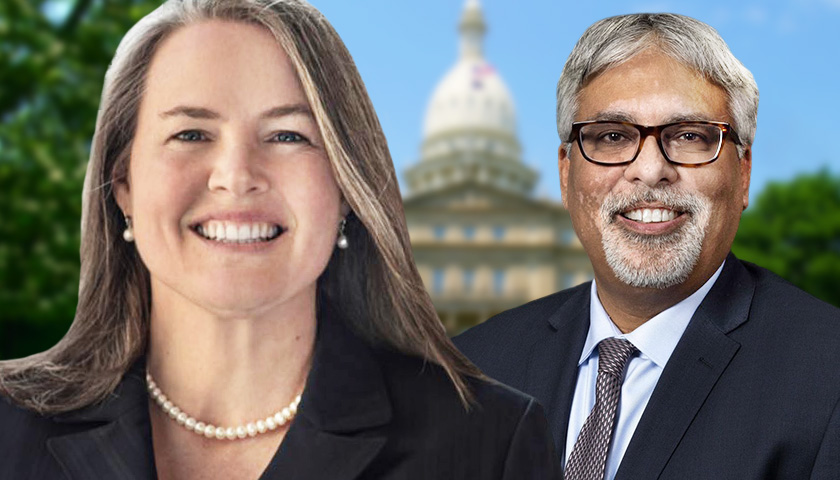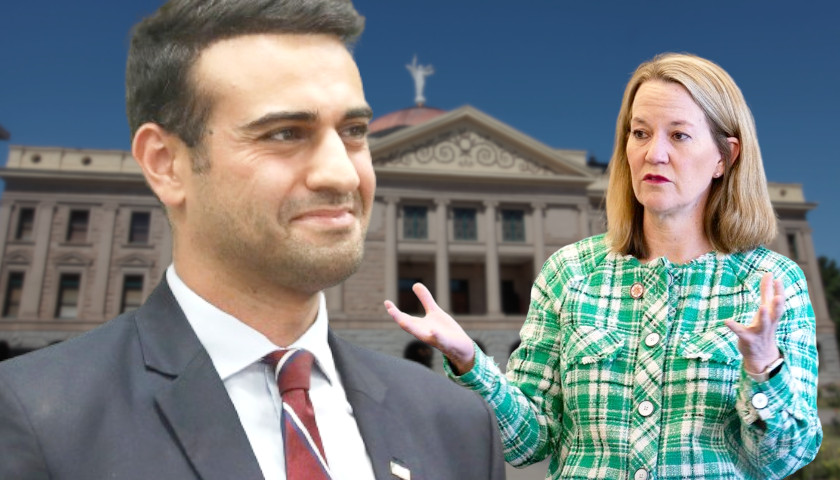by Scott McClallen
Michigan Senate Democrats introduced on Thursday a clean energy plan to force a 100% clean energy standard by 2035.
The plan includes forcing the end of coal-fired electricity generating plants by 2030, requiring utilities to move toward eliminating greenhouse gas emissions from power generation by 2035, and developing a 100% clean energy standard by 2035.
“Gov. Gretchen Whitmer’s Michigan Healthy Climate Plan was developed with the input of hundreds of stakeholders across Michigan,” Sen. Sue Shink, D-Northfield Twp said in a statement. “The recommendations, which I am working with colleagues to make law, will make our homes and businesses more comfortable and reduce energy costs while improving the reliability of energy delivery. Everyone wins.”
This plan includes the following:
- Energy waste reduction: Achieve at least 2% annual electric energy efficiency savings by increasing the current EWR target for electric utilities, and restoring the energy waste reduction target for municipal and cooperative electric utilities.
- Expand the authority of the Michigan Public Service Commission: Allow the MPSC to evaluate climate, health, equity, and affordability in the approval of utility-integrated resource plans.
- Codify Michigan Department of Agriculture and Rural Development’s PA 116 Program: Allow farmers to rent land for solar operations while maintaining the preservation of farmland enrolled in the PA 116 program.
- Clean Fuels Standard: Adopt to reduce the carbon intensity of transportation fuels by 25% by the end of 2035.
- Reduce emissions related to heating Michigan homes and businesses by 17% by 2030 through a Michigan construction decarbonization plan.
The plan will include legislation to promote the purchase and use of electric vehicles.
Jason Hayes, director of environmental policy at the Mackinac Center for Public Policy, challenged Democrat claims that “a majority of Michiganders support plans to lower emissions and increase accessibility to renewable energy.”
Hayes cited a 2018 survey, the most recent available, from the University of Michigan Institute of Public Opinion about energy and the environment, in which researchers asked the public how much they would be willing to pay for increased use of renewable energy.
“Only 4% said they’d be willing to spend more than $500 per year, only $1.37 per day,” Hayes wrote in an email. “Almost 80% of respondents refused to spend even $1 per day, 30% said they would be unwilling to spend anything – $0 – to expand renewable energy. It’s easy to say you support more renewable energy in a survey. It’s something else entirely to put your own money on the line to make it happen.”
Senate Majority Floor Leader Sam Singh, D-East Lansing, backs the plan.
“It is past due that we take action to address climate change and invest in the resources needed to make Michigan a leader in environmental resiliency and sustainability,” Singh said in a statement. “Creating energy efficiency standards and working to reduce carbon emissions and utility costs for residents will make a significant economic impact. This bill package signals our commitment to realizing our collective vision for a more sustainable future.”
Whitmer’s climate plan says 2 million EVs will be on the road by 2030, up from 25,181 in 2023. A 2021 Council on Future Mobility and Electrification report says 2 million EVs would require 10,000 Level 3 Chargers and 90,000 Level 2 chargers.
– – –
Scott McClallen is a staff writer covering Michigan and Minnesota for The Center Square. A graduate of Hillsdale College, his work has appeared on Forbes.com and FEE.org. Previously, he worked as a financial analyst at Pepsi.
Photo “Sue Shrink” by Sue Shink for State Senate. Photo “Sam Singh” by Sam Singh. Background Photo “Michigan Capitol Building” by Catherine Ottarson. CC BY-SA 4.0.








